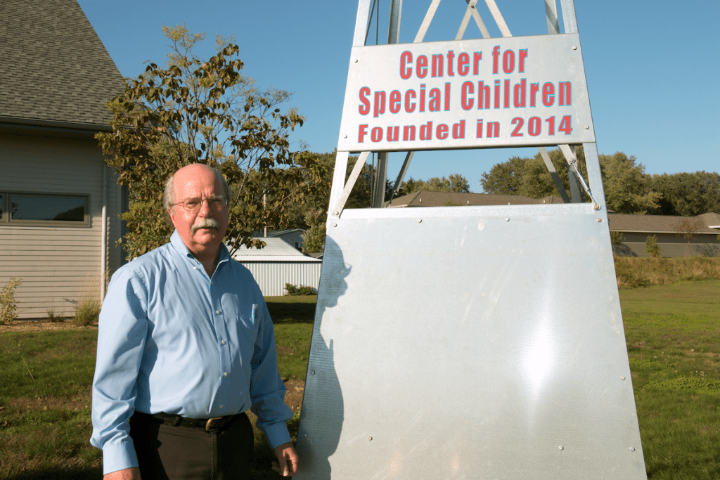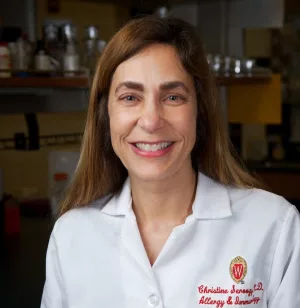Although their acceptance of technology is highly constricted by culture and religion, the Plain benefit from DeLine’s hybrid of 19th century rural doctoring with 21st century genetic medicine.
The genetic work has relied on clinicians from the School of Medicine and Public Health, and on testing at the State Laboratory of Hygiene, both at UW–Madison. The State Lab has already developed fast, low-cost diagnostic tests for more than 30 conditions afflicting Plain populations in Wisconsin.
Vanessa Horner, director of cytogenetic services and molecular genetics at the State Lab, said that once a test has been developed and validated, it becomes a “clinical assay” that must be performed in a certified laboratory such as hers. “It’s a highly regulated, rigorous testing environment.”
Funding for these tests and related activities came from grants totaling $800,000 from the Wisconsin Partnership Program in the School of Medicine and Public Health. “Addressing the health care needs of Wisconsin communities is a priority for the Wisconsin Partnership Program,” said Richard Moss, chair of the partnership education and research committee.
“This team’s innovative and successful community-engaged research has resulted in increased newborn screenings and affordable genetic testing that have the potential to spare our state’s Plain families from fatal medical conditions and costly hospitalizations,” added Moss, senior associate dean for basic research, biotechnology and graduate studies.
One newborn screening test created at UW–Madison, for example, detects maple-syrup urine disease, which prevents the normal breakdown of certain amino acids from food. Then, toxic byproducts attack the brain and other organs immediately after birth.
According to Mei Baker, co-director of newborn screening at the State Laboratory of Hygiene, which developed the test, “We make special arrangements for lab testing beyond regular working hours. The midwife collects a blood sample and a hired driver delivers it immediately to our lab. Six or eight hours after birth, we have the result, and the clinicians at Waisman Center advise the parents on an appropriate formula to avoid the symptoms. This service is free of charge, and you cannot do any better than that.”
Genetic diseases among the Plain arise from “founder mutations” that were present in the few Amish and Old Order Mennonites who immigrated to America in the 19th century. A second “genetic bottleneck” occurred among smaller groups that moved to Wisconsin, starting about a century ago.
Most of the genetic diseases he sees can be treated if not cured, DeLine said.
Mixing old and new
DeLine’s long and deep experience with many Amish families, and his anthropological knowledge of family relationships are part of his doctor’s toolkit.
So are home visits.



